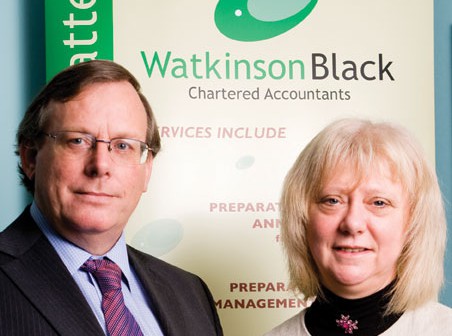by Margaret Black www.watkinsonblack.co.uk
SINCE 1 April 2016 you must register for VAT if your non-exempt turnover in the previous twelve months exceeds £83,000.
However, you’ll usually be better off by registering even where turnover is less than that.
The de-registration limit has been increased from £80,000 to £81,000.
Where non-exempt business turnover exceeds the registration limit the business must be registered within the next 30 days. However, anyone can register for VAT where they have some business activity which is not exempt. As a general rule, if the majority of the customers are VAT registered it is advisable to be registered even where turnover is lower than the registration limit as it does means that the VAT can be claimed on purchase costs.
When must you charge VAT on tips?
Where customer pay a gratuity with their bill this can, depending on the circumstances, trigger a VAT liability which must be accounted for out of the money received. What steps can be taken to avoid this happening
Tips from customers are normally made voluntarily to whoever has served them, however, if a restaurant owner includes a service charge on the bill, the percentage of that service charge is subject to VAT and that element should also be paid over to HMRC. Alternatively, VAT can be added to the service charge which will effectively increase it by 20%, but this might well put customers off returning.
When is VAT payable?
Assuming a supplier is VAT registered, where a payment also known as a “consideration” is made in return for the supply of goods or services, it is subject to standard rate VAT which is currently 20%. This does not automatically mean that a service charge is a supply for VAT purposes. That depends on why tips are paid. It does not matter whether tips are paid in cash or by debit/credit card, or whether they are paid to the business owner, employer or direct to the staff, these factors do not affect the tax position
Why are tips being paid?
So VAT only applies where there is both a supply and consideration given. If a specific service charge is not made, but the customer pays a tip anyway, there has been no supply on which VAT is payable. Whereas if a specific service charge is made then VAT must be accounted for either by adding it on top or incorporating it within the amount charged. In essence, if a tip is voluntary VAT doesn’t apply, but if it’s not, VAT is due. Be aware that If you have different arrangements for service charges, i.e. normally voluntary but mandatory for large groups, make sure you have your tills and other payment arrangements set up to differentiate between them. What counts as voluntary? if a charge for VAT is to be avoided it must be clear to all customers that they are not required to pay a tip or service charge.
We are pleased to assist with these and other relevant matters where possible
WatkinsonBlack – Accountants Who Care For Clients Who Matter
We have considerable experience in all areas of taxation and businesss services, including providing a very cost-effective payroll bureau service.
For more details email Margaret [email protected]




